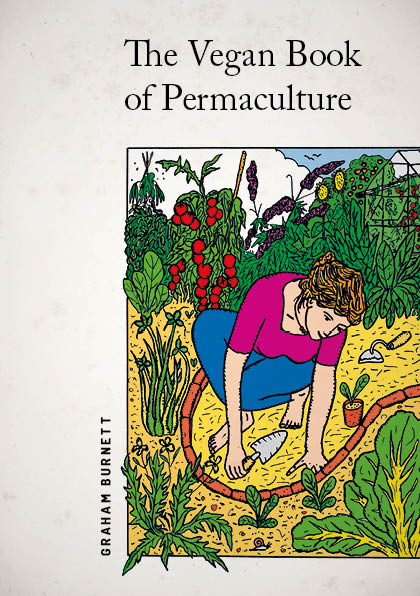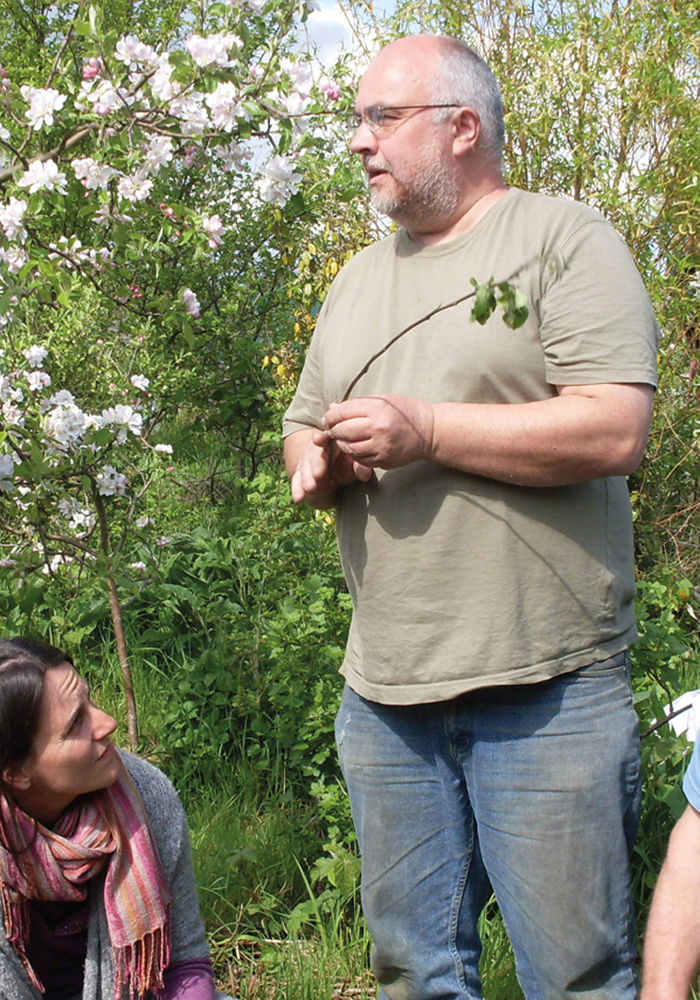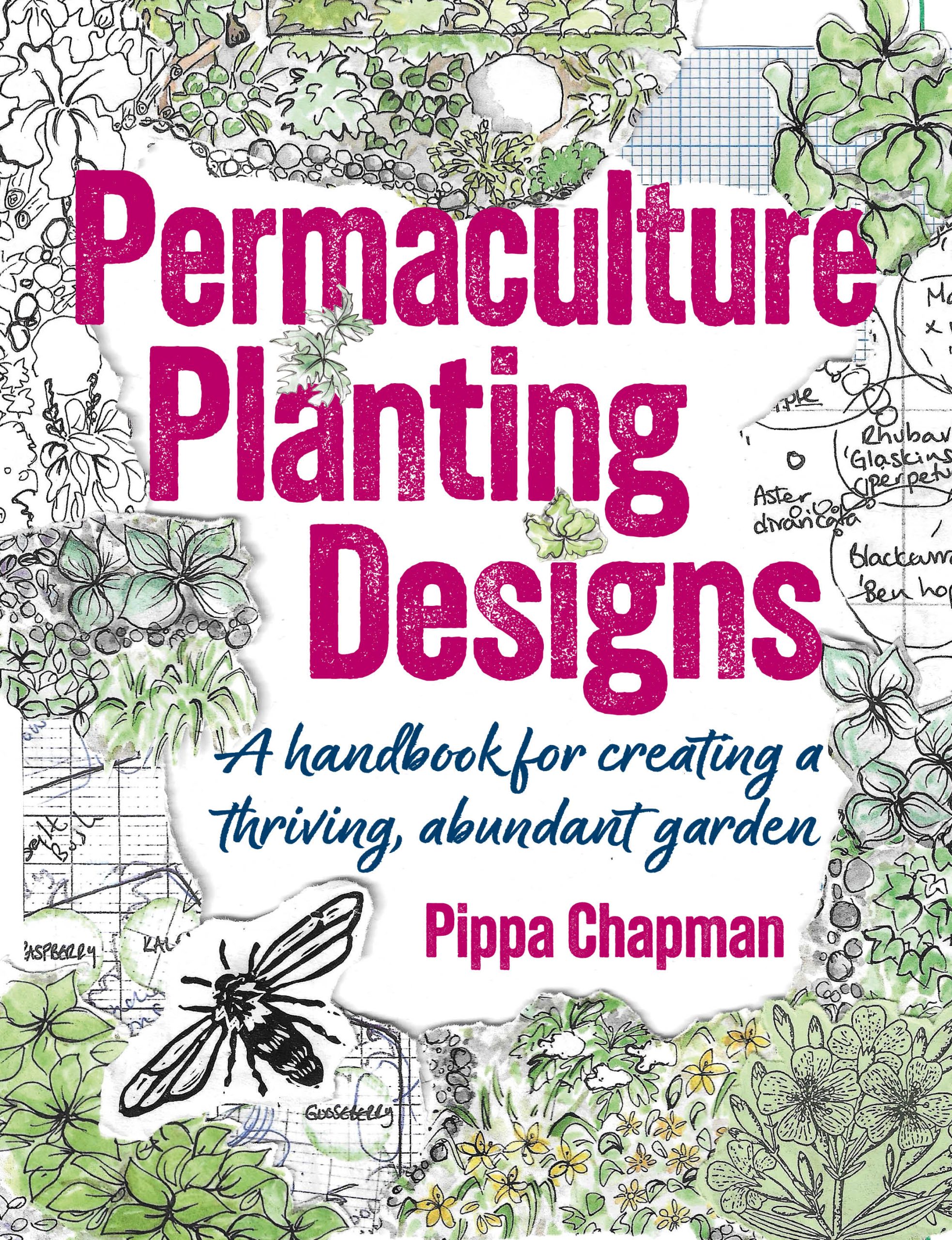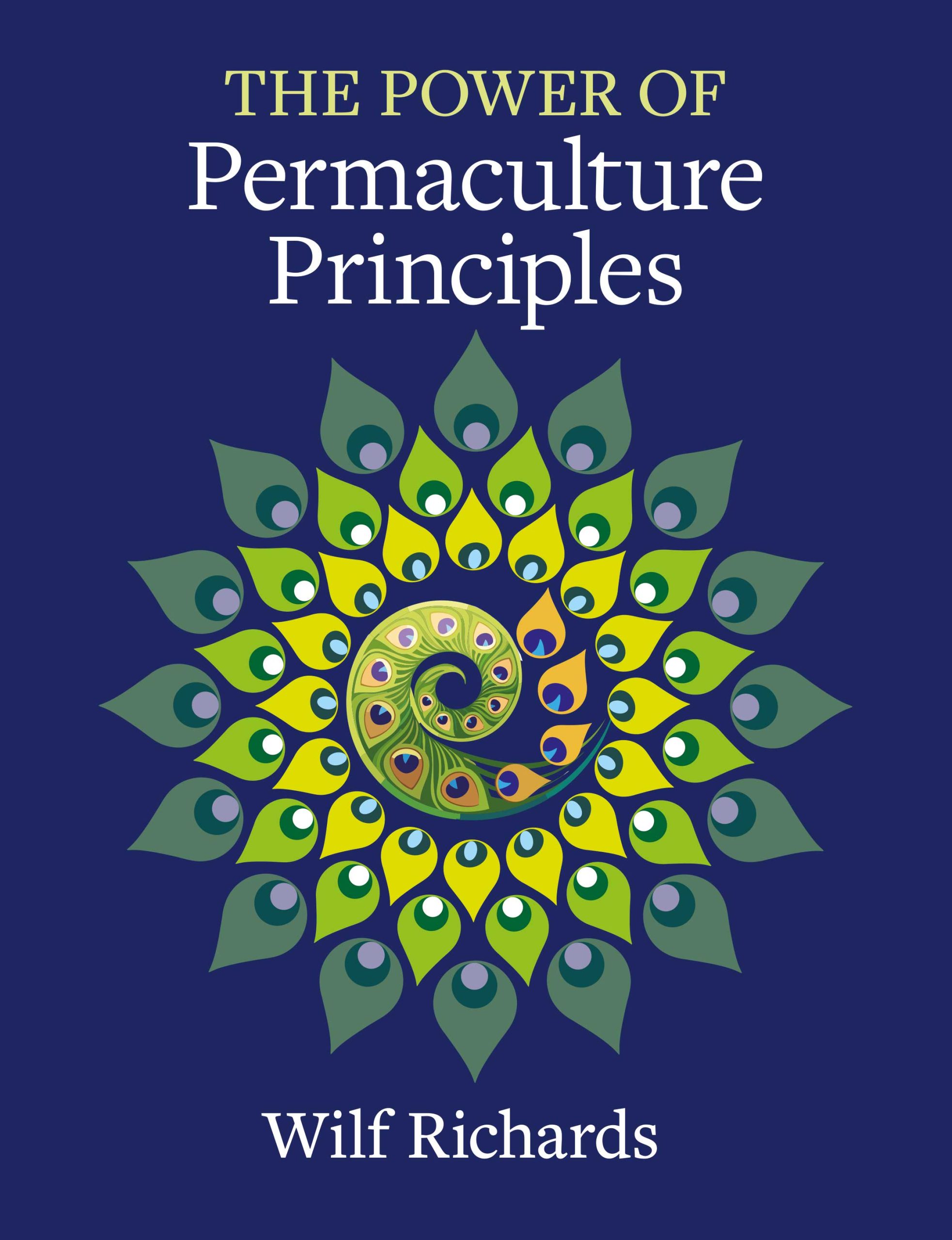
A vegan cookbook packed with wholesome recipes, veganic growing, forest gardening and eco-friendly living.
How we eat is such a fundamental part of what we are; yet in our present timepoor culture of pre-packed fast foods, food can become an expensive symptom of alienation and disempowerment. It doesn’t have to be this way!
The Vegan Book of Permaculture gives us the tools and confidence to take responsibility for our lives and actions. Creating a good meal, either for ourselves or to share, taking time to prepare fresh, wholesome home or locally grown ingredients with care and respect can be a deeply liberating experience. It is also a way of taking back some control from the advertising agencies and multinational corporations.
In this groundbreaking and original book, Graham demonstrates how understanding universal patterns and principles, and applying these to our own gardens and lives, can make a very real difference to both our personal lives and the health of our planet. This also isn’t so very different from the compassionate concern for ‘Animals, People and Environment’ of the vegan way.
Interspersed with an abundance of delicious, healthy and wholesome exploitation-free recipes, Graham provides solutions-based approaches to nurturing personal effectiveness and health, eco-friendly living, home and garden design, veganic food growing, reafforestation strategies, forest gardening, reconnection with wild nature and community regeneration with plenty of practical ways to be well fed with not an animal dead! This is vegan living at its best.
Book Details
Published: 21st November 2014
ISBN: 978 1 85623 201 2
Size: 240mm x 170mm
Format: Paperback, 304pp. Authors line drawings
Author

Graham Burnett, author of Permaculture: A Beginner's Guide and The Vegan Book of Permaculture, lives with his wife Debby and four children in Westcliff on Sea. He teaches and runs permaculture courses in North London through Naturewise and in West Essex at Dial House and is the founder of Spiralseed, an ethical organisation based around the three principles of permaculture, Earthcare, Peoplecare and Fair Shares. They offer courses, workshops and publications.




